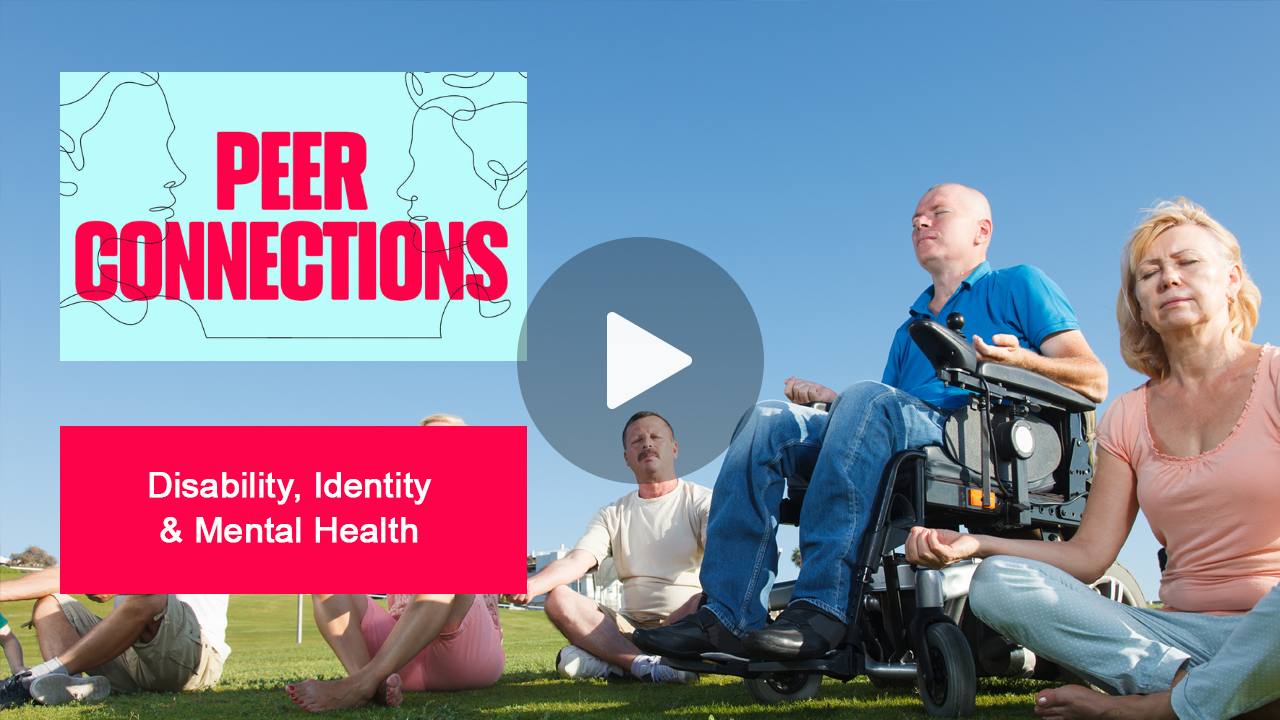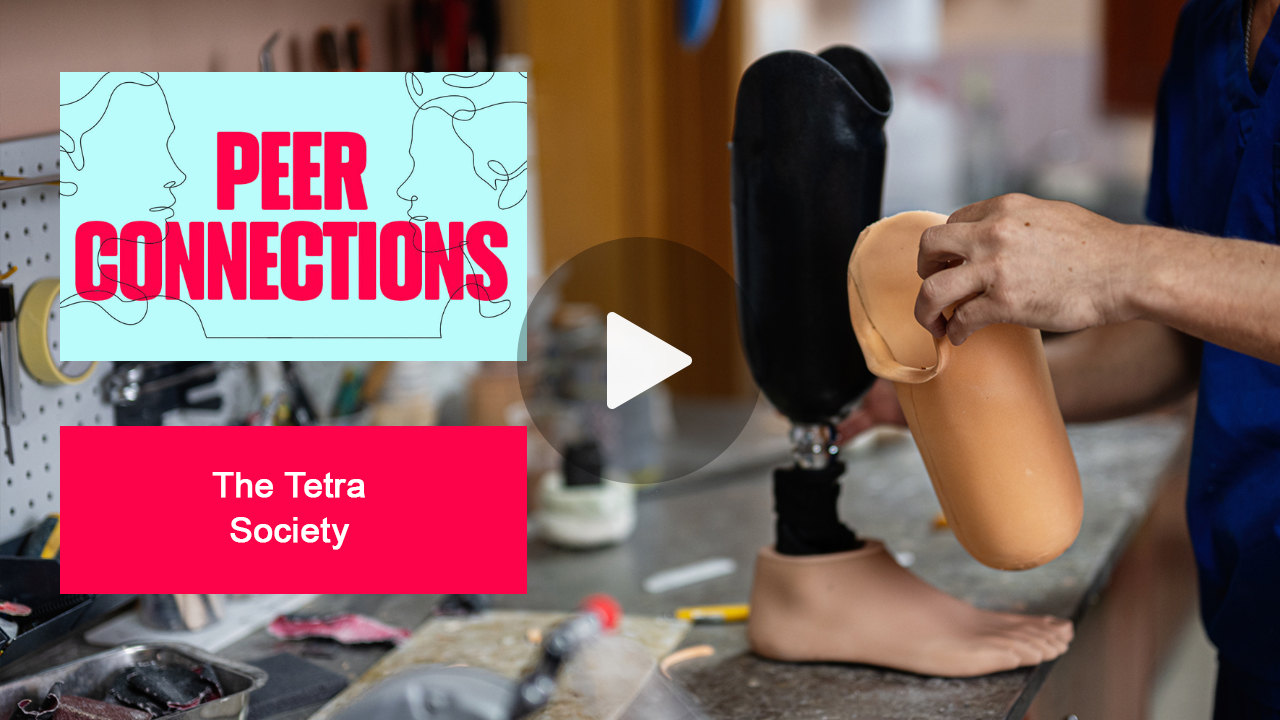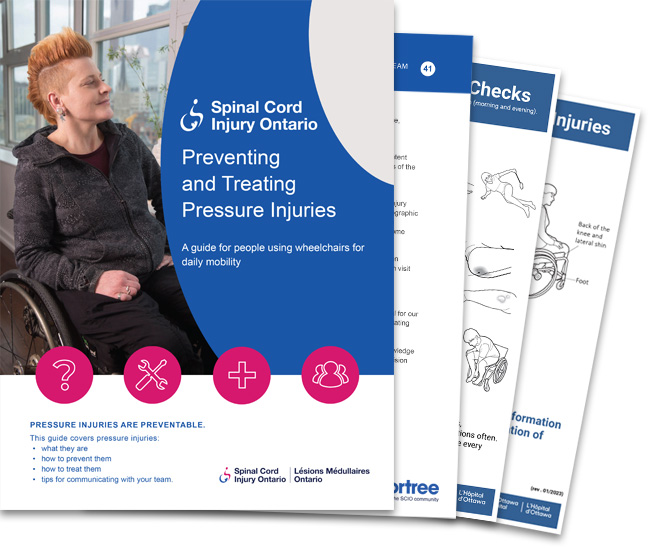This Peer Connections webinar is an introduction to Internet-delivered Cognitive Behavioural Therapy (ICBT). ICBT is a proven, effective method for managing a wide range of mental health challenges, such as stress, anxiety, depression, and chronic pain. This approach helps individuals understand the connection between their thoughts, feelings, and behaviours and how these influence each other in a cyclical pattern.
Wallace Upper, MSW RSW, and Melanie Earle join the SCIO Peer Support team to present two programs offered through the Lawson Health Research Institute and St. Joseph’s Health Care London, Parkwood Institute. Swati Mehta, PhD is Principal Investigator for these programs and the related research projects. Wallace Upper, MSW RSW, is the Clinical Research Associate.
The two programs presented are Spinal Cord Injury Chronic Conditions and Well-being Spinal Cord Injury for Care Partners.
Spinal Cord Injury Chronic Conditions
The SCI Chronic Conditions program is provided in collaboration with Spinal Cord Injury Ontario. It aims to provide education and guidance on simple and effective techniques for managing symptoms often experienced by those with SCI. The program helps people with thoughts, behaviours, and physical symptoms that are related to chronic health conditions, depression and anxiety. Research shows that these programs can help people gain control over their symptoms, improve their confidence, and get back to living a full, satisfying life. Adults with spinal cord injury living in the community are eligible for this program.
To learn more about the SCI Chronic Conditions program, visit: https://rehabpsych.sjhc.london.on.ca/sci-chronic-conditions
Well-being Spinal Cord Injury for Care Partners:
The Well-being Care Partners program aims to provide a tailored clinician guided education series based on cognitive behavioural therapy techniques for managing mental and emotional wellbeing of caregivers of people with spinal cord injury. The program consists of five core lessons to help care partners gain skills to manage their thoughts, behaviours, and physical symptoms resulting from caregiving, depression, anxiety, and caregiver burden.
The program was designed because so many people never seek treatment, but many have access to the Internet. Because the physical and emotional demands of being a care partners are often connected with symptoms of depression and anxiety, the goal of the study is to provide information and resources that could be used to manage these symptoms, and determine whether the program is able to improve well-being of care partners. During the week, participants can send questions or comments to their designated Guide (registered Mental Health professional) though a secure message system. On a set day each week, the Guide checks the website, reviews participant’s progress on the program and responds to messages.
The Wellbeing Care Partners Program is open to Canadian residents and is designed for care partners of people with spinal cord injury who have symptoms of depression or anxiety, are 18 years of age or older, are comfortable using and have access to the Internet.
To learn more about the Well-being Care Partners Program, visit: https://rehabpsych.sjhc.london.on.ca/wellbeing-sci-care-partners
To access services or support from Spinal Cord Injury Ontario, visit: https://sciontario.org/
These programs are not recommended if you have severe problems with alcohol or drugs, mania, psychosis, or strong thoughts of suicide. If you are feeling like you have lost hope and are struggling to cope, if you are dealing with thoughts of suicide, or if you are worried about someone else, 9-8-8: Suicide Crisis Helpline is a resource available 24-7 from anywhere in Canada. When you reach out, a trained responder will listen without judgement, provide support and understanding, and can tell you about resources that will help.
To learn more, visit Suicide Crisis Helpline at https://988.ca/





